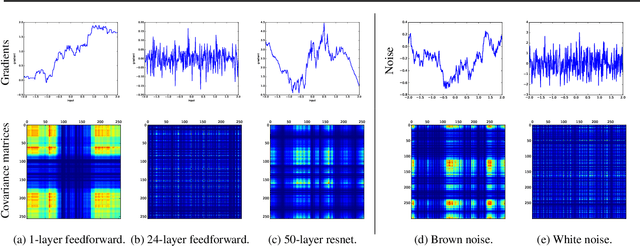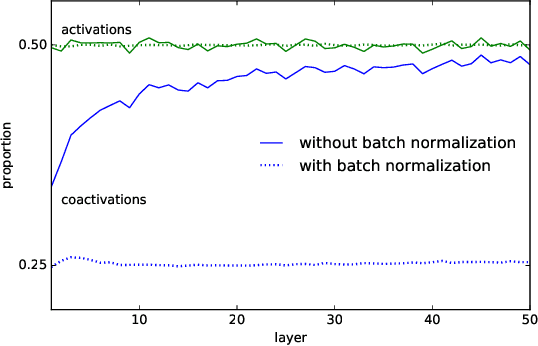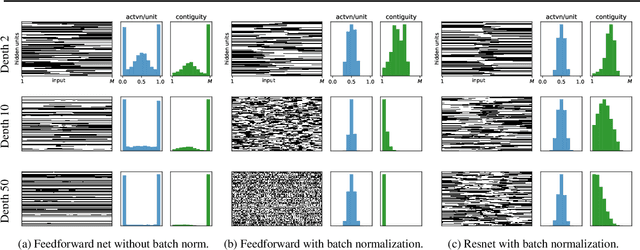The Shattered Gradients Problem: If resnets are the answer, then what is the question?
Paper and Code
Jun 06, 2018



A long-standing obstacle to progress in deep learning is the problem of vanishing and exploding gradients. Although, the problem has largely been overcome via carefully constructed initializations and batch normalization, architectures incorporating skip-connections such as highway and resnets perform much better than standard feedforward architectures despite well-chosen initialization and batch normalization. In this paper, we identify the shattered gradients problem. Specifically, we show that the correlation between gradients in standard feedforward networks decays exponentially with depth resulting in gradients that resemble white noise whereas, in contrast, the gradients in architectures with skip-connections are far more resistant to shattering, decaying sublinearly. Detailed empirical evidence is presented in support of the analysis, on both fully-connected networks and convnets. Finally, we present a new "looks linear" (LL) initialization that prevents shattering, with preliminary experiments showing the new initialization allows to train very deep networks without the addition of skip-connections.
 Add to Chrome
Add to Chrome Add to Firefox
Add to Firefox Add to Edge
Add to Edge